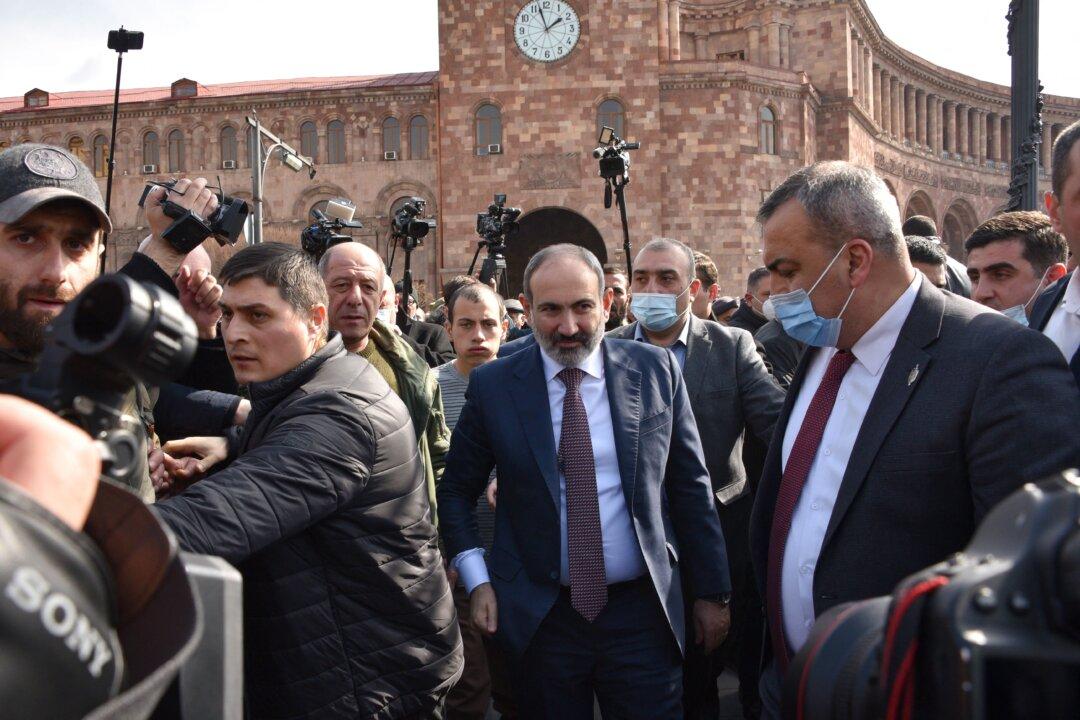Armenia is facing mounting public dissent over its recent decision to cede territory to neighboring Azerbaijan, its longstanding rival in the South Caucasus region.
On May 27, thousands protested in the capital Yerevan to demand the resignation of Prime Minister Nikol Pashinyan, whom they blame for the territorial concessions.





